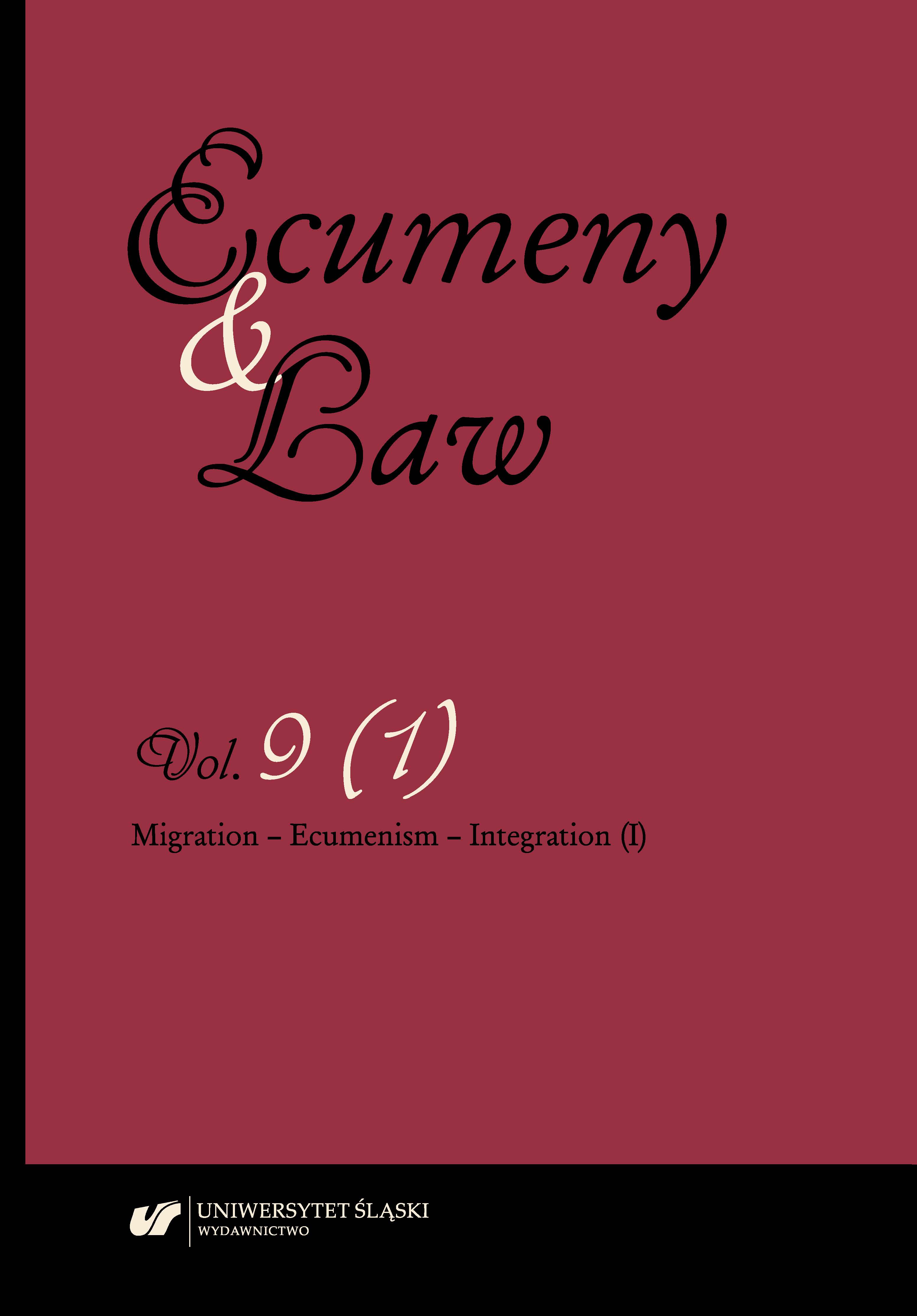Migration — Ecumenism — Integration
Migration — Ecumenism — Integration
Author(s): Zdzisław Józef KijasSubject(s): Theology and Religion
Published by: Wydawnictwo Uniwersytetu Śląskiego
Keywords: migration; ecumenism; integration; faith; pilgrimage; freedom;Church;
Summary/Abstract: The three concepts of migration — ecumenism — integration are rich in meaning. What is important is their order, the hierarchy of their occurrence. Migration is more or less any movement of people, individuals or whole groups. Ecumenism is in turn an appeal and an action. Its mission/task is to recognize in a certain group of people a religious difference and to make an effort to place it in an integral whole with other people who believe a little differently, but in the same God. Integration has the task of restoring or building an integral whole from people living in a particular territory. Full integration is called individual or collective identity. Since migration violates — to a greater or lesser extent — the individual or collective identity of both the country that receives immigrants and the immigrants themselves, integration aims to rebuild it, but no longer within the same mental structures, but rather ones enriched with new impulses that are the contribution of immigrants. The foundation — in our context, it is about faith in the God of Jesus Christ — remains unchanged, yet the superstructure undergoes some changes.
Journal: Ecumeny and Law
- Issue Year: 1/2021
- Issue No: 9
- Page Range: 7-23
- Page Count: 17
- Language: English

